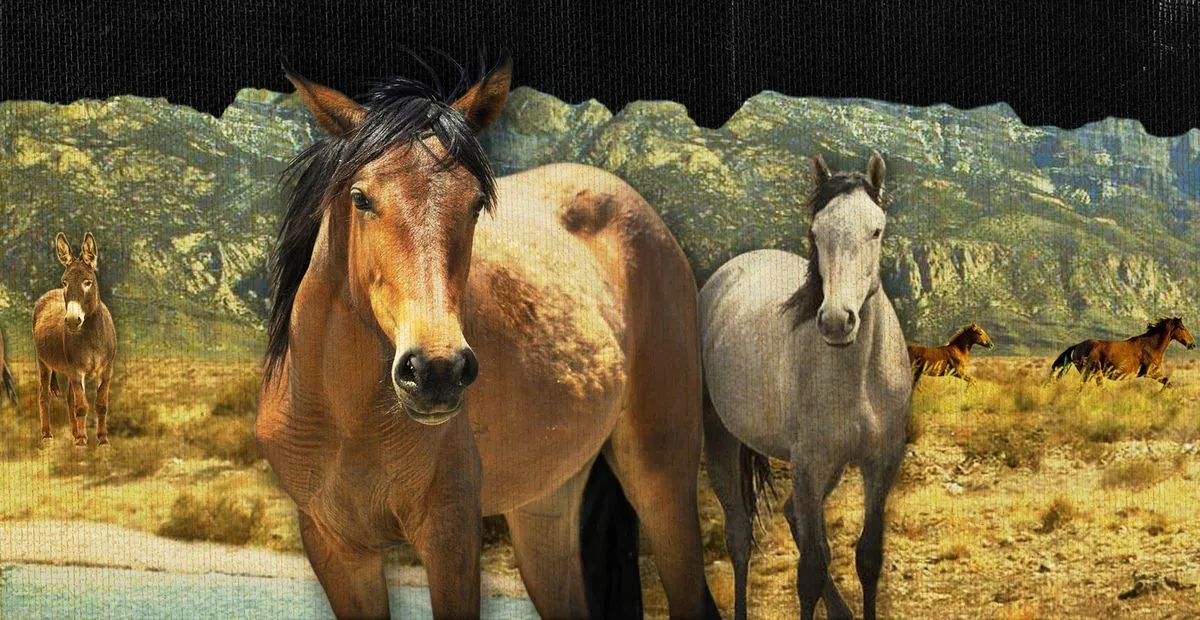The Ethical Dilemma of Horse Riding: A Shifting Perspective
As awareness of equine welfare grows, the traditional practice of horse riding faces scrutiny. Experts and activists debate the future of human-horse relationships, seeking a balance between welfare and human use.

In recent years, the equestrian world has been grappling with a growing ethical dilemma: Is horse riding still acceptable in modern society? This question has gained prominence as awareness of animal welfare issues continues to rise, challenging long-held traditions and practices in the horse industry.
Rachael Wheeler, co-founder of Jacobs Ridge, a sanctuary for horses in Spain, embodies this shift in perspective. Her journey from a young horse enthusiast to a custodian of rescue equines highlights the evolving attitudes towards horse-human relationships. Wheeler's experience with a "moody mare" at her local stables in Aberdeenshire led her to question traditional equestrian practices and ultimately pursue a different path in equine care.
: "A horse can become conditioned to suppression, learning that the easiest way is to just give in and do what's asked of them, but she kept fighting."
The development of equitation science over the past two decades has played a crucial role in reshaping our understanding of horse behavior and welfare. This field aims to remove anthropomorphism from horse training and instead focus on the pressures horses face due to human use. The Ridden Horse Pain Ethogram (RHPE), developed by equine vet Dr. Sue Dyson, has been instrumental in identifying behaviors associated with musculoskeletal pain in ridden horses.

As our understanding of equine behavior and welfare improves, traditional equestrian practices are coming under increased scrutiny. A 2022 survey by World Horse Welfare found that one in five people do not support horses in sport. Recent incidents, such as the leaked video of Olympic eventer Charlotte Dujardin whipping a horse and the images of spooked Household Cavalry horses in London, have further fueled public concern about horse welfare in various equestrian activities.
The concept of Social License to Operate (SLO) is gaining traction in the equestrian world. Lisa Ashton, senior lecturer in equitation science at Hartpury University, emphasizes the importance of legitimacy, transparency, communication, and trust in maintaining public support for equestrian activities. This framework challenges the industry to demonstrate that horses' lives are enriched by human interaction rather than merely used for human benefit.
Various equestrian sports face unique challenges in addressing welfare concerns. Dressage, polo, and horse racing are under particular scrutiny due to concerns about training methods, equipment use, and the physical demands placed on horses. The British Horseracing Authority (BHA) reports that an average of 200 horses die on British racecourses every year, highlighting the risks associated with the sport.
Service horses, such as those used in mounted police units and the military, also face welfare challenges. While effective for crowd control, these roles can be stressful for horses, which are naturally flight animals. Efforts are being made to improve the welfare of service horses, including changes to stable designs and social interactions.
As the debate continues, some advocates argue for a complete cessation of horse riding, while others seek a middle ground that prioritizes horse welfare while maintaining human-horse partnerships. Dene Stansall, an anti-racing campaigner, represents the more absolutist view, questioning whether there can ever be an ethical justification for riding horses.
The future of horse-human relationships remains uncertain. As Anna Haines of the Mare and Foal Sanctuary points out, horses are expensive to maintain, and their care becomes more costly as they age. This raises questions about the long-term sustainability of horse ownership and the potential consequences of reduced human engagement with horses.
As society grapples with these complex issues, the equestrian world must adapt to changing perceptions and prioritize horse welfare to maintain public trust. Whether this leads to a reimagining of horse-human partnerships or a more radical shift away from traditional equestrian activities remains to be seen.


































